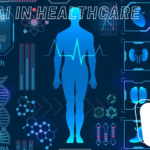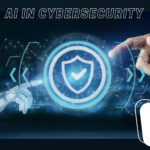AI and Robotics in Healthcare: Revolutionizing Medical Practice in 2023
Table of Contents
Introduction

The integration of Artificial Intelligence (AI) and robotics in healthcare has ushered in a new era of transformative medical practice. With AI-driven robotics, medical professionals now have access to advanced tools that assist in surgeries, offer rehabilitation support, and automate repetitive tasks in medical settings. This innovative technology improves patient outcomes, reduces human errors, and enhances the overall efficiency of healthcare delivery. In this blog, we will explore how AI-driven robotics is transforming the healthcare landscape and shaping the future of medicine.
AI-driven Robotics in Surgery

One of the most remarkable applications of AI in healthcare is its role in surgical procedures. AI-driven robots are revolutionizing the way surgeries are performed by providing surgeons with enhanced precision, accuracy, and real-time information during complex procedures. These robots can perform minimally invasive surgeries with greater dexterity, leading to smaller incisions, reduced blood loss, and faster patient recovery.
Moreover, AI algorithms can analyze vast amounts of patient data and medical literature to provide surgeons with personalised insights and recommendations before and during surgeries. This ensures that decisions are based on evidence and significantly reduces the risk of complications.
The Da Vinci Surgical System is a prime example of AI-driven robotics in surgery. This robotic system enables surgeons to perform intricate procedures with robotic arms that mimic human hand movements but with an increased range of motion and stability. By combining the skills of the surgeon with the precision of AI-driven robotics, surgical outcomes have been drastically improved.
Rehabilitation Support through AI-driven Robotics
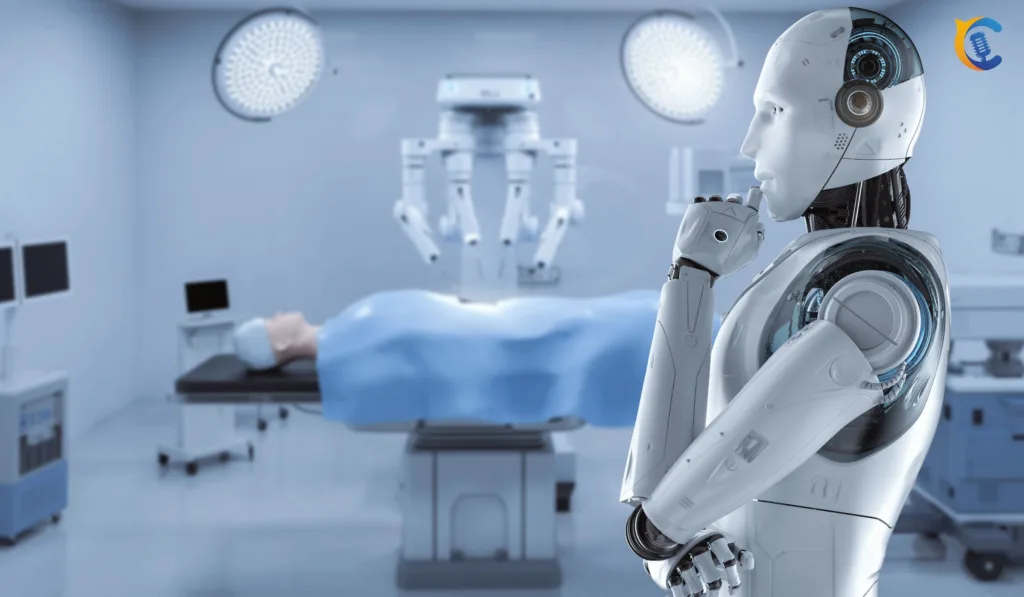
In the realm of rehabilitation, AI-driven robotics is making a significant impact in assisting patients with physical therapy and recovery. These robots are equipped with sensors and actuators that allow them to analyse patients’ movements and provide targeted support during rehabilitation sessions.
For stroke patients and those with physical disabilities, robotic exoskeletons can aid in walking, balance, and muscle-strengthening exercises. These devices not only provide physical support but also collect data on the patient’s progress, enabling therapists to tailor rehabilitation programmes based on real-time feedback.
AI algorithms can further analyse the collected data and identify patterns to optimise rehabilitation strategies, leading to faster recovery times and improved patient outcomes. By automating some aspects of physical therapy, healthcare providers can also allocate their time more efficiently, offering better care to a larger number of patients.
Automating Repetitive Tasks in Medical Settings
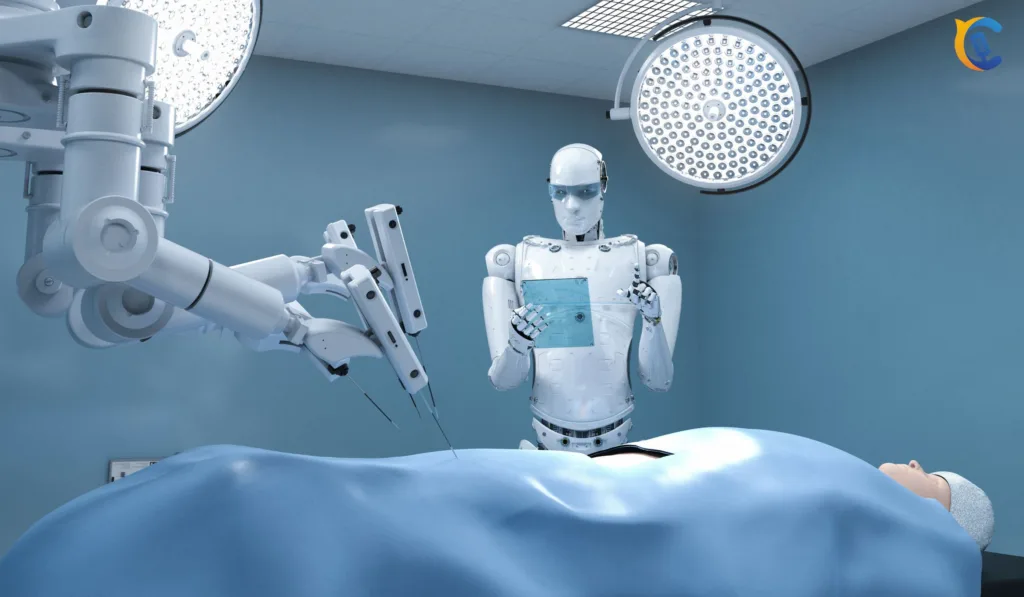
Healthcare facilities are often burdened with a multitude of repetitive and time-consuming tasks that can strain medical staff and potentially lead to errors. AI-driven robotics is helping to alleviate this burden by automating various tasks, allowing healthcare professionals to focus on more critical aspects of patient care.
In hospitals, robots can transport medications, deliver lab samples, and even disinfect patient rooms, reducing the risk of infection and improving overall hygiene. Additionally, AI-powered chatbots are being employed to handle routine patient queries, schedule appointments, and provide essential information, thereby streamlining administrative processes.
Automated systems also play a crucial role in laboratory settings, where AI algorithms can analyse medical images, such as X-rays and MRI scans, to detect abnormalities with a high degree of accuracy. This not only speeds up the diagnostic process but also enhances the accuracy of medical diagnoses.
Enhancing Diagnostics and Personalised Medicine
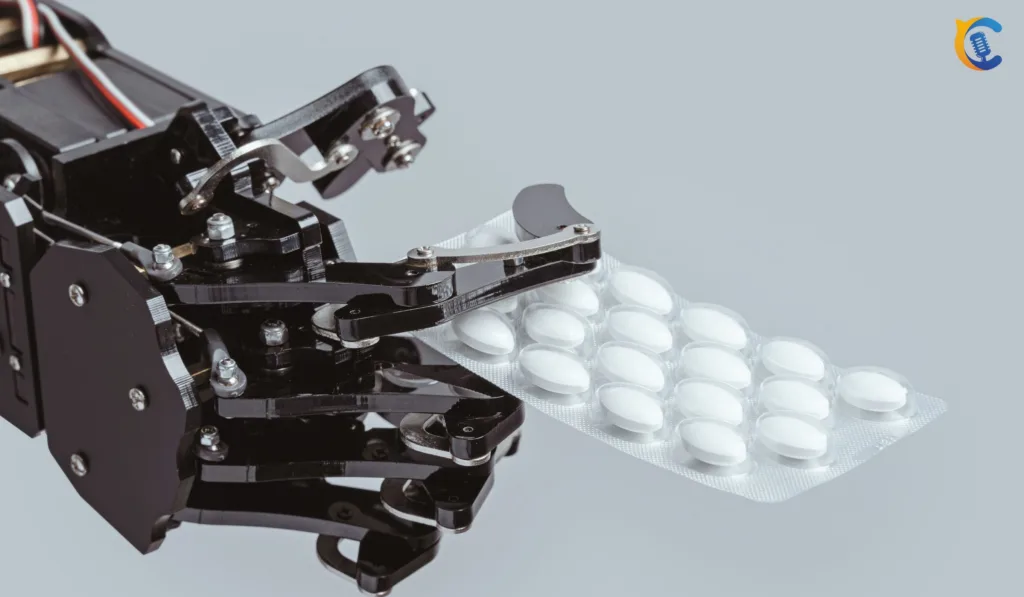
AI-driven robotics is also playing a crucial role in enhancing medical diagnostics and personalised medicine. Medical imaging technologies, such as MRIs, CT scans, and ultrasounds, generate vast amounts of data that can be overwhelming for human radiologists to analyse comprehensively. AI algorithms can quickly process and interpret this data, aiding radiologists in identifying subtle abnormalities that might otherwise be missed.
For instance, AI-powered image analysis can detect early signs of cancer, cardiovascular diseases, and neurological disorders with higher accuracy, leading to earlier interventions and improved patient outcomes. Moreover, AI can analyse a patient’s genetic data and medical history to identify potential risk factors, enabling healthcare providers to deliver personalised treatment plans tailored to each individual’s unique needs.
Remote Healthcare and Telemedicine
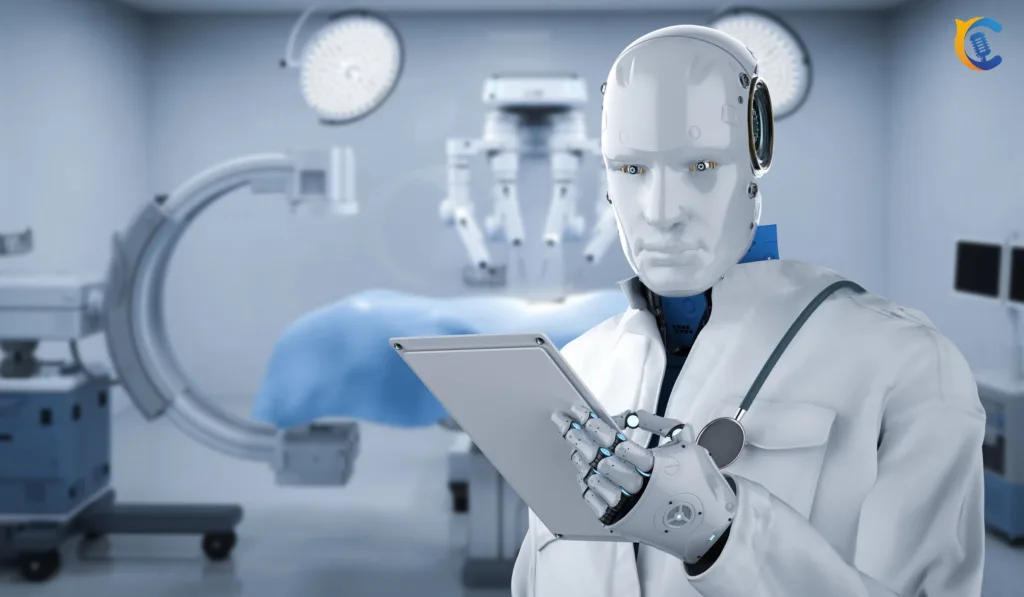
AI-driven robotics is instrumental in expanding access to healthcare in remote or underserved areas. Telemedicine platforms, integrated with AI-driven chatbots and virtual assistants, allow patients to connect with healthcare professionals remotely for consultations and diagnosis. These AI-driven systems can analyse patients’ symptoms, medical history, and vital signs to provide initial assessments and appropriate recommendations.
Moreover, AI-powered robots can be deployed in remote areas to act as “virtual carers,” monitoring patients’ health and assisting with daily tasks. These robots can relay vital data to healthcare providers in real time, enabling timely interventions and reducing the need for patients to travel long distances to access medical care.
Drug Discovery and Development
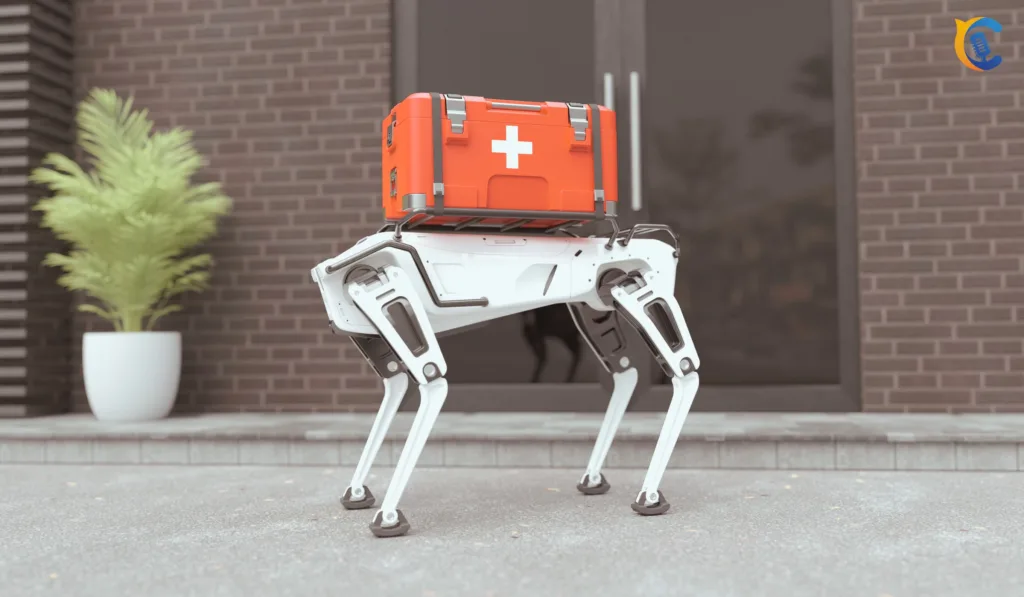
AI-driven robotics is transforming the field of drug discovery and development. The process of developing new pharmaceuticals is traditionally time-consuming, expensive, and often marked by high failure rates. AI algorithms can analyse vast databases of molecular and clinical data to identify potential drug candidates more efficiently.
These AI-driven systems can predict the behaviour of molecules, model drug interactions, and even identify potential adverse effects before clinical trials begin. By streamlining the drug discovery process, AI-driven robotics is accelerating the development of new therapies and enabling faster access to innovative treatments for patients.
Ethical and Regulatory Considerations
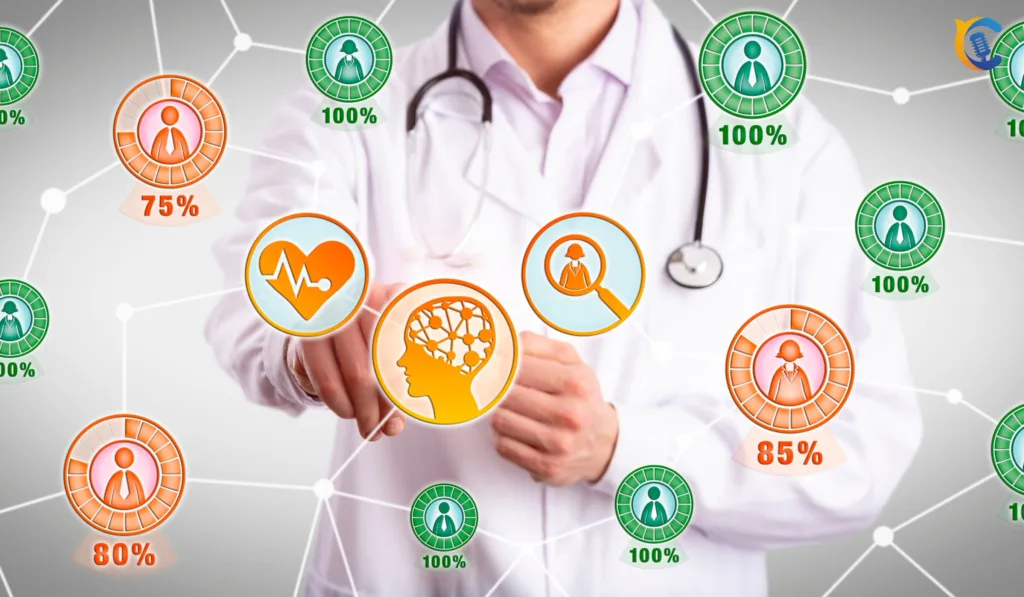
While AI-driven robotics offers promising opportunities for healthcare, it also raises important ethical and regulatory considerations. Ensuring patient privacy and data security is paramount when using AI algorithms to process sensitive medical information. Robust data protection measures and strict compliance with privacy regulations are essential to building trust between patients and AI-driven healthcare systems.
Additionally, there is a need to address potential biases in AI algorithms, which can lead to disparities in healthcare delivery. Developers must strive to create algorithms that are fair, unbiased, and transparent in their decision-making processes.
AI and Robotics in Healthcare: Key Facts
- Surgical Precision: AI-driven robotics enhance surgical precision, reducing human error during complex procedures.
- Rehabilitation Aid: Robots equipped with AI support patient rehabilitation, improving recovery outcomes.
- Automating Repetitive Tasks: AI-powered robots streamline medical workflows by automating mundane tasks and saving time for healthcare professionals.
- Remote Monitoring: AI-enabled robotics enables remote patient monitoring and expands healthcare access to remote areas.
- Enhanced Diagnostics: AI-assisted robots analyse medical data for more accurate and faster diagnostics.
- Minimally Invasive Surgeries: AI-guided robots enable minimally invasive surgeries, leading to faster recovery and reduced complications.
- Personalised Treatment Plans: AI-driven robotics help create tailored treatment plans based on patient-specific data.
- Precision Medication Administration: Robots with AI algorithms ensure precise medication delivery, minimising dosage errors.
- Rehabilitation Gamification: AI-powered robots engage patients through gamification to make rehabilitation exercises more enjoyable and effective.
- The Future of Elderly Care: AI-driven robots are revolutionising elderly care by providing companionship and support for daily tasks.
Conclusion
AI and Robotics in Healthcare: AI-driven robotics is undeniably transforming healthcare by revolutionising surgeries, providing rehabilitation support, automating repetitive tasks, enhancing diagnostics, enabling personalised medicine, expanding access to remote healthcare, and accelerating drug discovery. The combination of AI’s analytical power and robotics’ physical capabilities is reshaping medical practise and improving patient outcomes.
As this technology continues to evolve, it is vital for the medical community, policymakers, and society at large to collaborate in navigating the ethical, legal, and regulatory challenges that accompany AI-driven robotics in healthcare. By fostering responsible development and implementation, we can unlock the full potential of AI and robotics to create a healthcare system that is more efficient, accessible, and patient-centric than ever before.
- Arsenal team formation 2023: A Comprehensive Overview 2023
- Greece’s Epic Fight Against Devastating Wildfires
- NASA Shares First Images of US Pollution
- AIRCRAFT CRASHES IN AUSTRALIA’S NORTHERN TERRITORY DURING US MILITARY TRAINING EXERCISE
- Further Insights into the Top 20 US Cities with Highest Internet Usage












